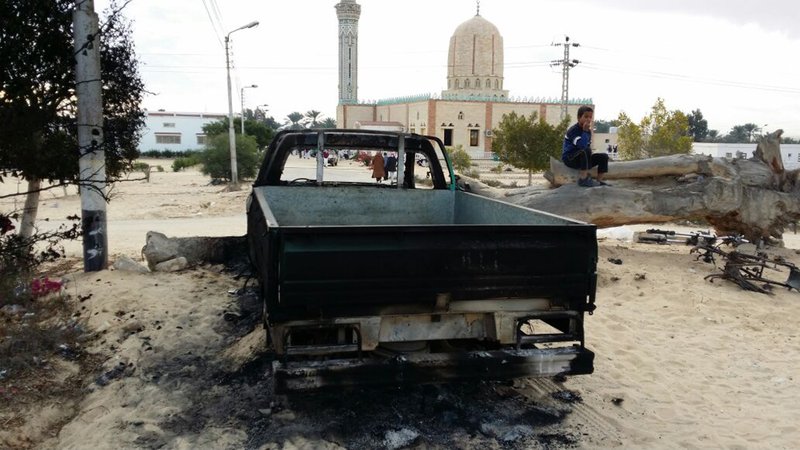
Egypt began a massive security operation Friday involving land, sea and air forces in areas including the restive northern Sinai Peninsula, the epicenter of an Islamic insurgency spearheaded by a local affiliate of the Islamic State group.
The operation, announced in a televised statement by army spokesman Col. Tamer el-Rifaai, began early Friday and covers central Sinai and areas in Egypt’s Nile Delta and Western Desert. He said the operation is targeting “terrorist and criminal elements and organizations.” There was no indication how long the operation would last.
In a subsequent statement, el-Rifaai said the air force carried out airstrikes on militant hideouts in north and central Sinai. He added that naval forces were deployed to cut off their supply lines and that security has been boosted around the country’s border crossings, shipping routes and vital facilities.
Security officials said the forces killed at least 20 militants in the north Sinai town of Bir al-Abd. They added that militants are also being targeted south and west of the town of Rafah, on the border with the Gaza strip. They spoke on condition of anonymity because they were not authorized to brief the media.
The operation began amid local media reports of heightened alert levels in north Sinai hospitals and in other neighboring provinces in anticipation of casualties. Local gas stations and shops were also ordered shut.
The military campaign comes ahead of the presidential election in March in which President Abdel-Fattah el-Sissi is running for a second four-year term with no serious contenders. El-Sissi was elected in 2014 in a landslide with promises of restoring security.
Egypt has for years been struggling to contain an Islamic insurgency in the turbulent Sinai region. It has carried out military operations there that, it says, have killed hundreds of militants and soldiers over the years. Egypt also built a buffer zone along the border with Gaza to curb the flow of militants and weapons through a vast tunnel network under the border. The insurgency, nevertheless, has shown no signs of abating.
In November, militants killed 311 worshippers in a mosque attack in the region, the deadliest in Egypt’s modern history. Shortly afterward, el-Sissi gave security forces a three-month deadline to restore stability to northern Sinai and authorized his chief of staff to use “all brute force.”
Later, militants fired a projectile at el-Arish airport and struck an Apache helicopter that was part of the entourage of Egypt’s defense and interior ministers who were in the city on an unannounced visit on Dec. 19. Neither minister was in the aircraft when the attack took place but the missile killed an officer and wounded two others. Egypt is currently building a buffer zone around the airport.
Egypt is also facing a growing number of attacks in its Western Desert along the porous border with Libya that has been the source of serious concern to authorities who contend Islamic militants and smugglers use it as their route into the country.
Militant attacks have generally surged since the 2013 military ouster of elected Islamist President Mohammed Morsi following mass protests against his divisive one-year rule. The violence has been concentrated in northern Sinai Peninsula but has also spread to the mainland.
The country has been under a state of emergency after suicide bombings struck two Coptic Christian churches on Palm Sunday last year in an attack that was claimed by the Egyptian affiliate of the Islamic State group.
Also on Friday, Egypt’s Interior Ministry said it killed three militants belonging to the Hasm movement in an exchange of fire during a raid on their hideout in Cairo. The ministry also said that it arrested 14 others during raids on militants’ hideouts in several provinces.
The Hasm movement, a group authorities believe to be linked to the now-outlawed Muslim Brotherhood group, has previously targeted security personnel in bombings and drive-by shootings.


